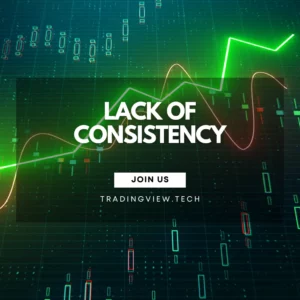In today’s fast-paced and interconnected world, the trend of chasing after “hot tips” has become increasingly common among traders. With the rise of social media platforms, online forums, and influencer-driven content, tips about market movements and trading opportunities are constantly circulating, often with enticing promises of quick profits. Whether it’s a tip shared in a group chat, a hot stock recommendation on Twitter, or a viral post by a financial influencer on Instagram, these sources have made it easier than ever for traders to feel like they’re on the inside track to the next big opportunity.
However, while the allure of easy money can be tempting, many traders fall into the trap of making impulsive decisions without conducting proper research or due diligence. The underlying issue is that these tips are often based on the opinions of individuals with limited or biased knowledge, rather than objective analysis or solid market data. Social media platforms, in particular, have made it all too easy for anyone, regardless of their experience or expertise, to post trading advice that can quickly spread to a broad audience.
This trend has created a culture of impulsive, reactionary trading, where decisions are driven by the need to capitalize on the latest buzz, rather than by sound strategy or market understanding. Unfortunately, these impulse-driven decisions often come with a high level of risk, as traders are making moves based on incomplete or misleading information. Rather than relying on proven methods or analysis, many traders chase after rumors, hoping that a quick tip will lead them to immediate success. This can lead to uninformed and high-risk trades, which may not align with their broader financial goals, often resulting in losses or missed opportunities.
The Dangers of Relying on Hot Tips
Relying on hot tips can be an extremely dangerous practice for traders, exposing them to a multitude of risks that can significantly harm their financial well-being. The most obvious danger is the potential for scams. With the rise of influencers and self-proclaimed experts on social media, it has become increasingly difficult to distinguish between legitimate advice and misleading or fraudulent information. Some individuals or groups may intentionally spread false tips or recommendations, with the goal of profiting from the misinformed actions of others. This phenomenon, known as “pump and dump,” is a prime example of how unverified tips can lead to disastrous outcomes.
Moreover, hot tips tend to be fleeting and speculative, often tied to short-term market trends that may not hold up in the long run. The stock, cryptocurrency, or other asset recommended in the tip could experience a temporary surge in value, driven by hype or buzz, but it’s unlikely to be supported by solid fundamentals. As a result, traders who act on these tips may find themselves caught in volatile price swings, with little chance of recouping their losses once the hype dies down. For many traders, this kind of volatile trading results in quick profits, but just as often, it leads to significant losses when the market corrects itself or the hype fades away.
Furthermore, following hot tips can lead to a misguided focus on short-term gains at the expense of long-term goals. Many traders get caught up in the excitement of chasing the next big thing, ignoring their broader investment strategy and risk management plans. This shift in focus can lead to a portfolio that is unbalanced, overly speculative, or lacking in diversification, making it more susceptible to sudden downturns or market corrections. By prioritizing quick wins based on tips rather than considering the broader financial landscape, traders risk sacrificing long-term financial security for short-term excitement.
Lastly, it’s essential to recognize that the success of someone else’s trade doesn’t necessarily mean it’s right for you. The person giving the tip may have different financial goals, a different risk tolerance, or a different market understanding than you. By blindly following tips, traders are essentially abandoning their own financial judgment, and replacing it with someone else’s, who may not have their best interests at heart. It’s easy to get swept up in the excitement of a promising tip, but in the end, this approach to trading is more likely to result in poor decisions and lost capital than sustainable wealth-building strategies.
In summary, blindly following hot tips exposes traders to scams, volatile market movements, and the temptation of short-term thinking. While the allure of easy profits may seem attractive, the dangers of chasing after tips without proper analysis or research can undermine a trader’s long-term success and financial security.
Psychology Behind Chasing Tips
The psychology behind chasing hot tips is deeply rooted in human emotions, particularly the fear of missing out (FOMO) and the desire for quick profits. As traders, individuals are often exposed to a constant flow of information, much of it highlighting others’ successes. This creates an environment where the fear of being left behind or missing out on a lucrative opportunity can cloud their judgment. FOMO can be incredibly powerful, especially in the world of trading, where every moment feels like a potential missed chance to make money. When traders see others posting about their latest stock pick or crypto investment, they may feel compelled to act quickly in order to get in on the action before the market moves.
At the core of this behavior is the innate human desire for instant gratification. Trading can be seen as a fast-paced environment where quick returns are possible, and for some, the temptation to make rapid profits is irresistible. Hot tips often promise this quick win, tapping into the trader’s need for immediate reward. However, the very nature of these tips tends to overlook the reality of market fluctuations, which require patience, strategy, and long-term thinking. By chasing tips, traders are often seeking a shortcut to financial success, but this can lead them down a perilous path where emotions override rational decision-making.
Another psychological factor that contributes to chasing hot tips is the herd mentality. Humans are social creatures, and the desire to fit in or follow the crowd is deeply ingrained in our behavior. On social media and trading forums, when a stock or asset is trending, it can seem like everyone is talking about it, making it feel like the “right” move to make. The fear of being left out of a winning trade is compounded by the validation of seeing others jumping on the same bandwagon. This herd behavior can be exacerbated by influencers or personalities who portray an image of success and expertise, creating a sense of pressure to follow their advice without question.
The emotional side of trading can also make it difficult for traders to separate fact from fiction. When people are emotionally invested in a potential outcome, they are more likely to rationalize or ignore red flags. This cognitive bias, known as confirmation bias, leads individuals to seek out information that supports their desired conclusion and disregard anything that contradicts it. A trader chasing after a hot tip may overlook the risks involved or the fact that the tip is based on a fleeting trend rather than solid market fundamentals. In these cases, emotions drive decision-making, leading to impulsive actions rather than calculated moves.
Lastly, trading on tips can also be a form of self-deception. Traders may convince themselves that they are making informed decisions, even if they have no concrete understanding of the assets they are investing in. This sense of false confidence can make it even more challenging to step back and evaluate whether a trade is actually in alignment with their broader financial goals. When emotions like greed, fear, and social pressure take over, traders can easily fall into the trap of following others without questioning whether the advice is sound or even legitimate.
In conclusion, the psychology behind chasing hot tips is largely driven by emotions like FOMO, the desire for quick profits, and the influence of social pressures. These emotional triggers cloud judgment, making traders more susceptible to impulsive decisions. The result is often a pattern of risky trades based on fleeting trends rather than thoughtful, research-backed strategies.
Lack of Proper Research and Due Diligence
One of the most significant dangers of chasing hot tips is the complete lack of proper research and due diligence. When traders rely on tips from friends, online forums, or influencers, they are often making decisions based on little more than hearsay or conjecture, rather than factual analysis. The key to successful trading lies in understanding the assets you’re investing in, the market conditions, and the long-term trends that influence price movements. Without this understanding, a trader is flying blind, trusting others’ opinions rather than their own research.
Research is an essential part of informed decision-making in trading. Successful traders spend time learning about the assets they’re interested in, analyzing company fundamentals, studying market trends, and understanding the broader economic factors that could impact their investments. For instance, before buying stock in a company, a trader should understand the company’s financial health, its business model, its competitive position in the market, and any potential risks. When traders skip these essential steps in favor of jumping on a hot tip, they are making themselves vulnerable to the market’s unpredictability. This lack of understanding can lead to hasty decisions that may be entirely at odds with their broader financial goals.
Due diligence goes beyond simply reading up on an asset—it also involves taking the time to evaluate and cross-check information from multiple, reliable sources. Traders who fall for hot tips often fail to perform this due diligence. They may trust a single post, tweet, or conversation without considering the source or verifying the facts. This can be especially dangerous in the age of social media, where misinformation spreads quickly, and opinions can be mistaken for expertise. By relying solely on tips, traders risk acting on outdated, inaccurate, or biased information.
Moreover, chasing tips encourages a reactive rather than proactive approach to trading. Traders who follow hot tips are often reacting to the latest news or social media buzz, rather than building a well-researched portfolio that aligns with their financial goals and risk tolerance. This lack of proactive planning is a significant problem, as it means that trades are made based on trends and rumors, rather than on a coherent, strategic analysis of the market. This approach can lead to frequent, erratic trading, which increases transaction costs and exposes traders to unnecessary risk.
An essential part of due diligence is also understanding the risks involved with any investment. When traders skip this process, they may underestimate the potential downside of a particular trade. Every investment carries risk, and no asset is immune to fluctuations. Traders who make decisions based on tips without considering the risk factors may be setting themselves up for significant losses. Furthermore, failing to diversify a portfolio or consider long-term trends in favor of short-term “hot picks” can lead to an unbalanced and unstable investment strategy.
Finally, a lack of proper research can leave traders unprepared for market shifts. The financial markets are constantly evolving, influenced by economic data, geopolitical events, and shifts in consumer behavior. A trader who relies on tips without understanding the broader context of these changes may find themselves caught off guard when market conditions shift unexpectedly. By engaging in thorough research and staying informed, traders can anticipate potential risks and opportunities, making them more equipped to weather market volatility.
How to Avoid Chasing Hot Tips
Avoiding the trap of chasing hot tips requires a disciplined approach to trading that emphasizes long-term strategy over short-term impulses. Here are actionable strategies to help traders make more informed and rational decisions, rather than reacting to rumors or trends:
1. Develop a Disciplined Trading Plan
One of the most effective ways to avoid the temptation of chasing hot tips is by creating and sticking to a well-thought-out trading plan. A trading plan serves as a roadmap that defines the trader’s objectives, risk tolerance, preferred markets, and specific strategies to follow. It helps traders stay focused on their long-term goals, reducing the influence of short-term, impulsive decisions.
- Define Your Objectives: Set clear, measurable financial goals. Are you looking for short-term profits, or are you focused on long-term wealth building? By clearly defining your objectives, you’ll be less likely to jump into trades that don’t align with your goals.
- Risk Management: Establish rules for how much capital you are willing to risk on each trade. Typically, traders risk no more than 1-2% of their trading capital per trade to ensure they can withstand losses and continue trading.
- Trading Strategy: Identify and use specific strategies based on research and analysis, such as trend-following, technical analysis, or fundamental analysis. A clear strategy removes the need to rely on external tips.
- Consistent Evaluation: Periodically evaluate and adjust your plan. Be flexible enough to refine your strategy when necessary but remain committed to your overall objectives.
By adhering to a disciplined plan, traders can avoid getting swept up in the excitement of the latest hot tip.
2. Set Specific Goals and Stick to Them
Traders who chase hot tips often do so because they’re looking for a quick win or an easy route to success. Setting specific, realistic goals helps avoid this impulsive behavior by creating a clear path to follow. Establish both short-term and long-term financial goals to maintain focus.
- Short-Term Goals: These could be related to learning a new trading strategy, gaining proficiency in a particular market, or achieving a specific return on investment (ROI) over a set period.
- Long-Term Goals: These focus on overall wealth-building, such as growing your investment portfolio by a certain percentage over several years or reaching a particular financial milestone (e.g., retirement savings).
- Goal Tracking: Regularly track your progress to measure your success and identify areas for improvement. When you focus on your established goals, you’re less likely to be distracted by external noise.
By having clear goals, traders can evaluate opportunities more thoughtfully and resist the urge to make hasty, emotion-driven decisions based on tips.
3. Stick to Trusted, Data-Driven Sources
Instead of relying on tips from social media or friends, traders should turn to reliable and data-driven sources for their decision-making. This means investing time in researching assets using fundamental and technical analysis, as well as utilizing platforms and tools that offer verified information.
- Fundamental Analysis: Evaluate the financial health and prospects of a company or asset by analyzing its earnings reports, balance sheets, industry trends, and other financial metrics.
- Technical Analysis: Use charts, price action, and historical trends to identify patterns and make predictions about future price movements.
- Professional Insights: Rely on established analysts and research platforms (such as Bloomberg, Reuters, or Morningstar) that offer well-researched, objective opinions based on solid data. These sources can help you make more informed decisions without being influenced by unverified tips.
It’s crucial to remain skeptical of tips or advice from unknown sources and instead invest time in understanding the markets yourself. Trusting data-backed analysis will lead to more informed and rational trading decisions.
4. Use a Journal to Record and Analyze Trades
Another effective way to avoid impulsive trading decisions is by keeping a trading journal. Documenting each trade you make—why you made it, what analysis you used, the outcome, and any emotional factors involved—can help you spot patterns in your decision-making process. Over time, this practice will help you learn from your mistakes, fine-tune your strategies, and avoid making trades based on external tips or emotions.
- What to Record: Entry and exit points, trade rationale, trade size, market conditions, emotional state during the trade, and lessons learned.
- Review Regularly: Set aside time at least once a month to review your journal. This can help you identify bad habits, emotional biases, and areas where your trading strategies need improvement.
By maintaining a journal, you’ll develop more confidence in your own analysis, which can reduce your reliance on external tips.
5. Practice Patience and Emotional Control
Impatience is a key driver behind the desire to chase hot tips. Traders may feel pressure to act quickly on a perceived opportunity, but successful trading requires patience. It’s important to allow your research to guide your decisions, rather than succumbing to the urgency of the latest hot tip.
- Mindfulness and Control: Practice mindfulness techniques to keep your emotions in check. Techniques such as deep breathing, meditation, and visualization can help maintain emotional control and prevent hasty decisions.
- Avoid Overtrading: Set boundaries for how often you trade and stick to your strategy. Overtrading in an attempt to catch every potential tip will likely result in losses and heightened stress.
Patience and emotional control help traders stay aligned with their plan and resist the impulse to chase tips based on fleeting market trends.
| Strategy | Benefit |
| Develop a disciplined plan | Provides structure and direction, reducing impulse decisions |
| Set specific goals | Focuses attention on long-term objectives, minimizing distractions |
| Use data-driven sources | Ensures informed decisions based on facts rather than rumors |
| Keep a trading journal | Enhances learning and minimizes emotional, reactive trading |
| Practice emotional control | Helps prevent impulsive decisions and maintains patience |
Conclusion: Empowering Traders to Make Informed Decisions
In the world of trading, the allure of quick profits can be powerful, but it is essential to resist the temptation to chase after hot tips. Blindly following tips from social media, friends, or forums can lead to risky decisions and financial losses. Instead, traders should focus on empowering themselves to make informed decisions based on thorough research, a disciplined strategy, and sound risk management practices.
The key to long-term success in trading lies in taking control of your financial future. This involves developing your own understanding of the markets, conducting your own analysis, and making decisions grounded in facts and strategy, not emotional impulses or unverified tips. By setting specific goals, maintaining a disciplined approach, and relying on trusted, data-driven sources, traders can ensure that their decisions align with their broader financial objectives.
Ultimately, the most successful traders are those who take the time to build their knowledge, stay focused on their goals, and remain calm under pressure. Rather than being swayed by the noise of the market or the latest trend, they make thoughtful, calculated decisions that are based on their own analysis and research. In doing so, they are not just reacting to the market but actively shaping their financial future.
In conclusion, taking control of your trading decisions is not just about resisting the temptation of hot tips; it’s about embracing a mindset of informed decision-making, disciplined planning, and strategic thinking. By doing so, traders can navigate the markets with confidence, achieve their financial goals, and ultimately build a more secure future for themselves.



